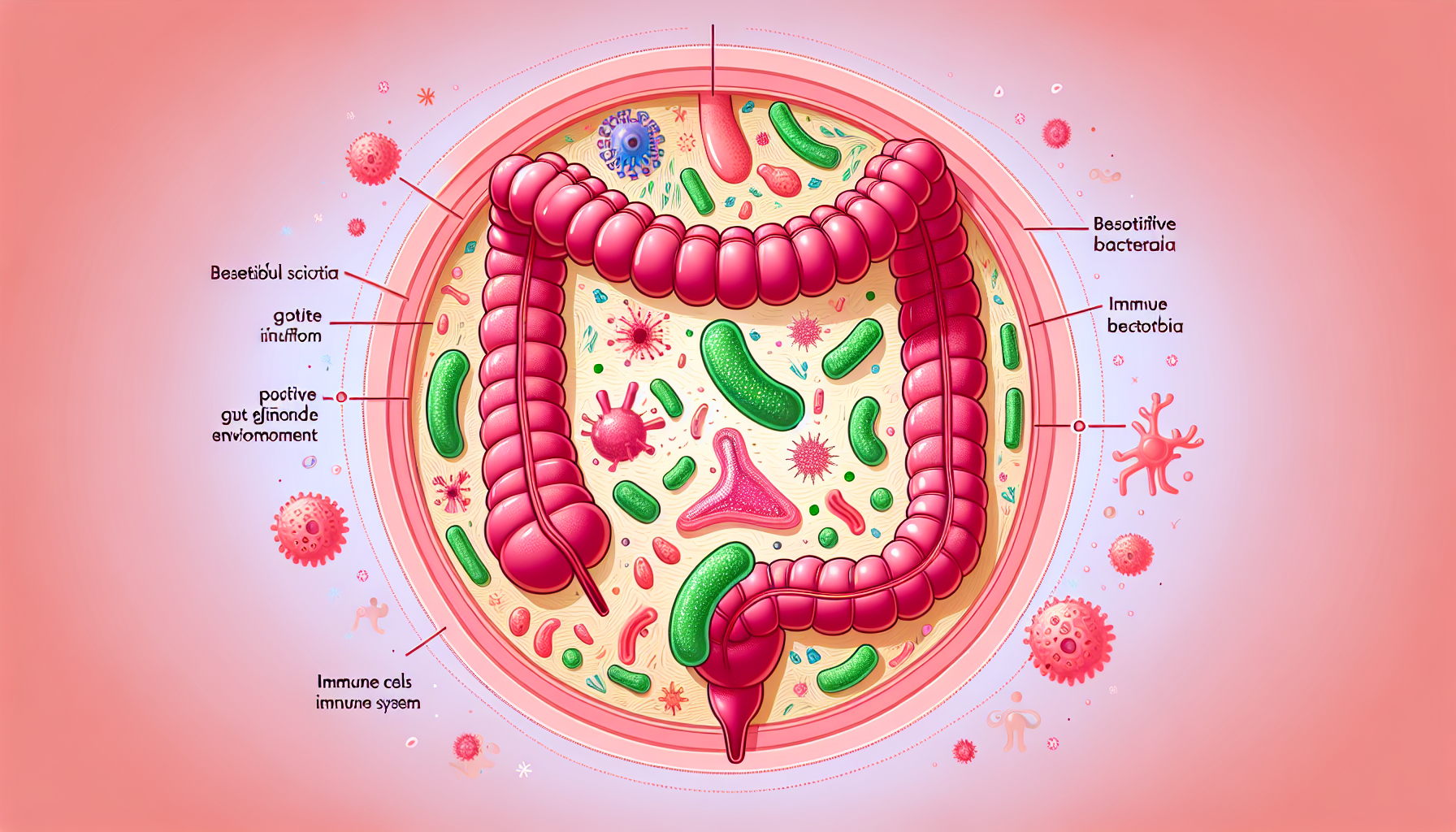Our immune system is a complex network of cells and proteins that defends the body against infection. While it’s known that factors such as genetics, age, and lifestyle impact our immune health, recent research underscores the significant role that gut health plays in supporting and strengthening our immune system. The gastrointestinal tract is not only responsible for the digestion and absorption of nutrients but is also a key site of immunological activity. This article will explore the intricate relationship between gut health and immune function, offering strategies to bolster immunity through maintaining a healthy gut.
The Gut-Immune Connection
The human gut is home to trillions of bacteria, collectively known as the gut microbiota. These microorganisms are essential for maintaining a balanced immune response. A diverse and balanced gut microbiota helps in the development of immune cells and the production of essential substances, such as short-chain fatty acids (SCFAs), which have anti-inflammatory properties.
The intestinal lining itself serves as a barrier to protect the body from pathogens. When this barrier is compromised, it can lead to a condition known as "leaky gut," where bacteria and toxins enter the bloodstream, potentially triggering inflammation and weakening the immune system. Therefore, a healthy gut is synonymous with a strong immune defense. For more detailed insights into maintaining digestive health, consider reading about Digestive Health on Avix Health.
Whole Grains and Colonic Health
Incorporating whole grains into your diet is a simple yet effective strategy to support colonic health. Whole grains are rich in dietary fiber, which promotes the growth of beneficial gut bacteria. These bacteria ferment the fiber, producing SCFAs that nourish colon cells and reinforce the gut barrier. For a deeper understanding of how whole grains influence colonic well-being, the article on the Impact of Whole Grains on Colonic Health is an invaluable resource.
Balancing Gut Flora
Antibiotics, while life-saving, can disrupt the delicate balance of the gut microbiota. This disruption can lead to a weakened immune system and increased susceptibility to infections. To mitigate these side effects, it’s important to focus on balancing gut flora. Incorporating fermented foods rich in probiotics, such as yogurt, kefir, and sauerkraut, can help restore this balance. To delve further into this topic, "Balancing Gut Flora to Combat Antibiotic Side Effects" offers comprehensive guidance.
Probiotics and Prebiotics
Probiotics are live beneficial bacteria that, when ingested, can improve the gut microbial balance. Prebiotics, on the other hand, are non-digestible fibers that feed these probiotics. A combination of both can enhance gut health and, by extension, immune function. For more information on this symbiotic relationship, the article on The Benefits of Probiotic and Prebiotic Combination Therapies provides an expert analysis.
Functional Foods for Gastrointestinal Well-Being
Certain foods are considered "functional" due to their health benefits beyond basic nutrition. These include foods rich in omega-3 fatty acids, antioxidants, and polyphenols, which can reduce inflammation and support gut mucosal health. A deep dive into the world of functional foods can be found in the article titled "Functional Foods and Their Role in Gastrointestinal Well-Being."
External Resources for Gut Health
To further your understanding of gut health and its impact on immunity, several niche resources can offer valuable information. The International Scientific Association for Probiotics and Prebiotics provides in-depth research on probiotics and prebiotics. For insights into the latest in gastrointestinal research, the American Gastroenterological Association offers a wealth of knowledge. Additionally, the Gut Microbiota for Health platform shares expert opinions and findings on the gut microbiome’s role in overall health.
Lifestyle Factors Impacting Gut Health
Apart from diet, various lifestyle factors can impact gut health. Stress management is critical, as chronic stress can alter gut bacteria and increase intestinal permeability. Adequate sleep and regular exercise also contribute to a healthy gut microbiome, which supports immune function.
Conclusion
The significance of gut health in maintaining a strong immune system cannot be overstated. By integrating whole grains, balancing gut flora with probiotics and prebiotics, embracing functional foods, and managing lifestyle factors, one can create a robust foundation for immune health. As we continue to unravel the complexities of the gut-immune axis, what remains clear is the power of our gut to influence our overall well-being.
In pursuit of improved gut health, individuals should seek out high-quality information and consider consulting healthcare professionals for personalized advice. By nurturing our gut, we empower our body’s natural defenses, paving the way for a healthier and more resilient life.



